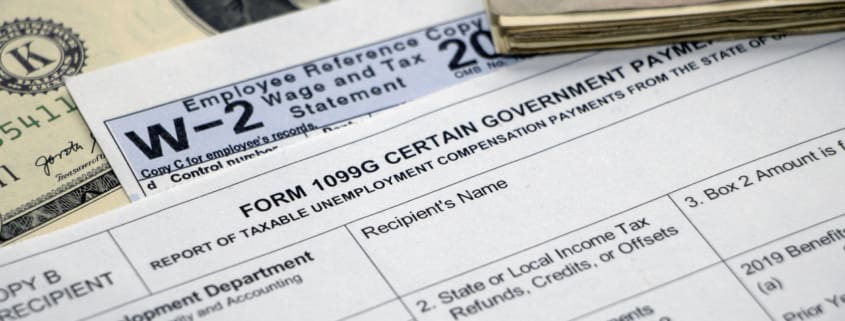How to Prepare for an EDD Misclassification Audit
As a business owner the best way to prepare for, or avoid entirely, an audit from the Employment Development Department (EDD), is to make sure that you’re correctly classifying your employees. Whether your employees W-2 or 1099 employees or a combination of both, it’s important to ensure that they are correctly classified as such. The misclassification of workers, whether mistakenly or purposely, may result in significant consequences for your business.
When do Misclassification Audits Happen?
Misclassification audits happen when EDD suspects you of incorrectly classifying your employees or contract workers. There are a number of different scenarios that may trigger an EDD audit. If one of your employees was incorrectly classified as a 1099 independent contractor and they file for unemployment, worker’s compensation, or disability, it may likely attract attention from EDD.
Additionally, EDD may be made aware of a potential issue if an employee or other source reports your business for improperly classifying employment status. That being said, even if you’re confident that you’ve classified all of your employees correctly and no employees have reported you, there’s still always a possibility that EDD might choose to audit your business. EDD consistently audits companies at random to ensure that businesses are complying with proper employment regulations.
Preparing for your Upcoming Audit
The EDD audit process starts with the mailing of the notification of the audit. This notification informs your business that EDD intends to audit your payroll taxes. This initial documentation should include a detailed list of documents that EDD will want to review so that you can begin to gather the information they’ll need. It also includes questions for you to answer as they prepare to begin the audit process.
Once you have received notification of an upcoming audit from EDD, you can begin collecting the requested information to make the audit as seamless as possible. It is best to solicit assistance as soon as you receive the notification of your upcoming audit. Experts such as those at Milikowsky Tax Law can support you through the audit process to ensure that you are protected to the best of your ability.
EDD Audit Process
It’s important to be as compliant as possible when working with your EDD auditor. Making things more difficult will only continue to complicate the audit process further. It’s best to offer neither inadequate information nor unsolicited information throughout the audit process.
Typical EDD audits assess a business’s previous three years of payroll tax records. However, this can be extended to older records if the auditor deems circumstantial.
There are various ways that an auditor can classify various employees. There is always a possibility that an auditor can utilize various factors of classification to favor EDD against the interests of the business being audited. The support of an experienced tax attorney can assist in protecting your business against such actions.
After the Audit
The consequences of an audit range depending on what the outcome is. Unintentional misclassifications often result in a $50 fine for each employee that was wrongfully classified as an independent contractor.
Your business may also receive the following penalties:
- 1.5% of employee wages to compensate for income tax withholding
- 40% of employee payroll taxes
- 100% of matching employer payroll taxes plus interest on each of these penalties
- Failure to Pay Taxes penalty of 0.5% of the unpaid tax liability for each month of delinquency
Intentional misclassification often results in more serious penalties including 20% of wages paid and 100% of payroll taxes. In more severe cases, businesses may be charged up to a $1,000 fine per misclassified worker and up to one year in prison. Overall, California employers may see fines of up a total of $25,000 per misclassification violation.
If you need help preparing for, or navigating an audit from EDD, contact our team of experts at Milikowsky Tax Law.



